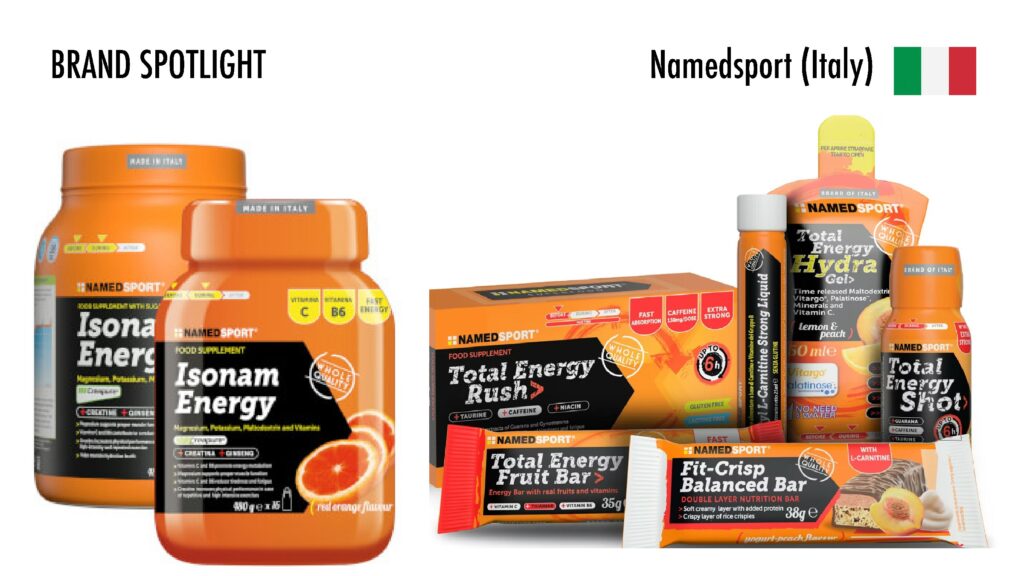
The Nutrient Boom: Marketing for Supplements Brands
In an era where health and wellness are becoming increasingly important, the supplements market has experienced significant growth. As consumers seek to optimize their well-being, demand for products that offer targeted nutrition and health benefits has soared. As a result, marketing for supplements brands is a crucial aspect of capturing this growing market share. In this article, we delve into the intricacies of the supplements market and explore the strategies employed by successful brands to connect with their customers.

Understanding the Supplements Market Landscape
The global supplements market is characterized by a diverse array of products catering to various health needs, demographics, and lifestyles. To understand the dynamics of this market, it is essential to consider the following factors:
The global dietary supplements market has been on a steady upward trajectory, with a valuation of approximately $140.1 billion in 2020. This figure is projected to grow at a compound annual growth rate (CAGR) of 8.6% from 2021 to 2028, reaching an estimated $230.7 billion by 2028, according to a report by Grand View Research.
A key driver of this growth is the rising consumer awareness regarding health and nutrition, coupled with an increasing prevalence of lifestyle-related health issues. The widespread availability of supplements through various distribution channels, such as online retailers, pharmacies, and specialty stores, has also contributed to the market’s expansion.
Let food be thy medicine and medicine be thy food.
– Hippocrates
Trends Reshaping the Supplements Market
The supplements market is continuously evolving, influenced by emerging trends that shape consumer preferences and industry dynamics. Some notable trends currently impacting the market include:
Personalized Nutrition:
The concept of personalized nutrition has gained significant traction, with consumers seeking tailored solutions that cater to their unique health needs and goals. As a result, companies are increasingly investing in research and development to create customized supplements based on individual genetic profiles, dietary habits, and lifestyle factors.
Plant-Based and Natural Ingredients:
The demand for plant-based and natural ingredients has surged, driven by consumer concerns regarding the safety and efficacy of synthetic ingredients. This trend has led to the introduction of various plant-derived supplements, such as herbal extracts, plant-based proteins, and probiotics, catering to the growing consumer preference for clean-label products.
Focus on Immunity:
The COVID-19 pandemic has heightened consumer interest in immunity-boosting supplements, leading to a spike in sales of products containing ingredients like vitamins C and D, zinc, and elderberry. As health-conscious consumers continue to prioritize immune support, this trend is expected to have a lasting impact on the supplements market.
Technological Innovations:
Technology is playing an increasingly important role in the supplements market, with companies leveraging innovations like artificial intelligence, 3D printing, and nanotechnology to enhance product development and delivery. For instance, some brands are using AI-driven algorithms to provide personalized supplement recommendations based on consumer data, while others are exploring the potential of 3D-printed supplements that enable precise nutrient dosages.

Consumer Behaviour: The Future of the Supplements Market
As the supplements market continues to flourish, brands must adapt to evolving consumer needs and preferences to stay ahead of the curve. This may involve investing in research and development to create innovative products, aligning with emerging trends, and focusing on sustainability and ethical practices in sourcing and production.
Moreover, as regulations surrounding supplements vary across countries, brands must remain vigilant and compliant with local and international standards to ensure consumer safety and trust.
The supplements market is thriving, with an ever-increasing number of consumers turning to these products to support their health and well-being. As a result, understanding consumer behaviour in buying supplements is crucial for brands seeking to tap into this lucrative market. In this article, we delve into the factors that influence consumer decision-making in the supplements market and the role of marketing for supplements brands in shaping these choices.
The Factors Influencing Consumer Behaviour
A multitude of factors contribute to consumer decision-making when it comes to purchasing supplements. Some of the most significant aspects include the below and should be taken into account when outlining any strategy of marketing for supplements brands.
Health Needs and Goals:
A consumer’s specific health needs and goals are a primary driver of their supplement purchasing decisions. Whether seeking to improve their overall well-being, address nutrient deficiencies, or enhance athletic performance, consumers choose supplements that align with their objectives.
Ingredients and Quality:
The ingredients and quality of a supplement play a crucial role in consumer choices. Many consumers are increasingly seeking clean-label, plant-based, and natural supplements, reflecting a growing preference for products perceived as safe and effective.
Brand Reputation:
Trust is paramount in the supplements market, and a brand’s reputation can significantly impact consumer decision-making. Brands that have established a strong track record for quality, safety, and transparency are more likely to attract and retain loyal customers.
Price and Value:
While price is a consideration for many consumers, the perceived value of a supplement often plays a more substantial role in the decision-making process. Consumers are willing to pay a premium for products that offer tangible benefits and deliver on their promises.
Recommendations and Reviews:
Personal recommendations from friends, family, and healthcare professionals, as well as online reviews and testimonials, can heavily influence consumer choices in the supplements market. Positive word-of-mouth can be a powerful marketing tool for supplements brands.

The supplements market is a diverse landscape, catering to a wide range of consumer needs and preferences. Understanding the different types of customers that make up this market is crucial for brands seeking to connect with their target audience and create tailored marketing strategies. In this article, we delve into the various supplements customer types and discuss the implications for marketing for lifestyle brands.
The Health-Conscious Consumer
Health-conscious consumers view supplements as an integral part of their wellness routine, seeking products that support their overall well-being and help prevent health issues. These customers prioritize quality, efficacy, and safety, often opting for brands with strong reputations and transparent sourcing practices.
Marketing for supplement brands Implications: For supplements brands targeting health-conscious consumers, it is crucial to emphasize the benefits and quality of their products in their marketing materials. This may involve showcasing third-party certifications, providing detailed ingredient information, and highlighting the scientific research supporting the product’s effectiveness.
The Athletic and Fitness Enthusiast
Athletic and fitness enthusiasts turn to supplements to enhance their performance, support muscle recovery, and optimize their training. These consumers are often interested in products such as protein powders, pre-workout supplements, and amino acids, and may be drawn to brands that cater specifically to their fitness goals.
Marketing for supplement brands Implications: To connect with athletic and fitness enthusiasts, supplements brands should focus on showcasing the performance-enhancing benefits of their products. This may involve partnering with athletes or influencers in the fitness space, sponsoring events or competitions, and creating content that highlights the science behind the products and their potential impact on athletic performance.
The Aging Population
As the global population ages, the demand for supplements that support healthy aging and address age-related health concerns is on the rise. Older consumers may seek products that promote bone and joint health, cognitive function, or heart health, among other concerns.
Marketing for supplement brands Implications: Marketing for supplements brands targeting the aging population should focus on addressing the specific health concerns of this demographic. This may involve creating informative content that educates consumers about the benefits of certain ingredients or supplements, as well as showcasing testimonials from customers who have experienced positive results.
The Plant-Based and Eco-Conscious Consumer
Plant-based and eco-conscious consumers prioritize supplements that align with their ethical and environmental values, often seeking out products that are vegan, cruelty-free, and sustainably sourced. These consumers may be drawn to brands that emphasize their commitment to sustainability and ethical practices in their marketing efforts.
Marketing for supplement brands Implications: To appeal to plant-based and eco-conscious consumers, supplements brands should highlight their commitment to sustainability and ethical practices in their marketing materials. This may involve showcasing the use of plant-based and natural ingredients, sharing information about environmentally friendly packaging and production processes, and partnering with organizations or initiatives that align with the brand’s values.

Innovative Supplement Examples
The global supplements market is brimming with innovation, as brands continually seek to differentiate themselves and cater to the evolving needs and preferences of consumers..
Terranova: A Holistic Approach to Supplements
Terranova is a UK-based supplement brand that has made a name for itself through its commitment to holistic health and natural, plant-based ingredients. Founded by Stephen Terrass, a leading expert in natural medicine, Terranova offers a wide range of supplements formulated using synergistic blends of whole, unadulterated plant extracts, vitamins, and minerals. Their unique approach, known as the “Synergistic Nutrition Philosophy,” aims to enhance the bioavailability and efficacy of their products, while staying true to the brand’s ethical and environmental values.
Marketing for Terranova supplements brands has focused on emphasizing the brand’s commitment to holistic health, natural ingredients, and sustainability. By crafting a strong brand narrative and visual identity that showcases these core values, Terranova has built a loyal following of consumers who resonate with their approach to wellness. The brand also leverages content marketing, social media, and influencer partnerships to educate and inform consumers about the benefits of their products and the principles of holistic health.
Namedsport: Performance Nutrition for Athletes
Namedsport, an Italian lifestyle brand, has carved out a niche in the competitive sports nutrition market by offering a comprehensive range of products designed to support athletic performance, recovery, and well-being. With a focus on research and innovation, Namedsport collaborates with professional athletes, sports nutritionists, and scientific partners to develop cutting-edge formulations that cater to the unique needs of athletes across various disciplines.
Marketing for Namedsport supplements brands has been key to their success in the sports nutrition space. The brand leverages high-profile partnerships with professional athletes and sports teams, such as Trek-Segafredo and Team Bahrain Victorious, to enhance credibility and increase visibility among their target audience. Namedsport also invests heavily in event sponsorship, digital marketing, and content creation to showcase the science behind their products and demonstrate their commitment to supporting athletic performance.
HUM Nutrition: Personalized Nutrition for Beauty and Well-being
HUM Nutrition is a Los Angeles-based supplement brand that combines the principles of personalized nutrition with a focus on beauty and well-being. Offering a range of innovative, science-backed formulations targeting various beauty concerns, such as skin health, hair growth, and digestion, HUM Nutrition has quickly gained a reputation as a trailblazer in the beauty supplements market.
A key component of marketing for HUM Nutrition supplements brands is their personalized approach to customer engagement. By offering free consultations with registered dietitians and a personalized product recommendation engine, HUM Nutrition fosters a sense of trust and loyalty among their customers. The brand also leverages eye-catching packaging, influencer marketing, and social media to create buzz and attract new customers.
Nootrobox (HVMN): Pioneering the World of Nootropics
Nootrobox, now known as HVMN (pronounced “human”), is an innovative supplement brand that has made waves in the emerging nootropics market. Founded by Silicon Valley entrepreneurs, HVMN offers a range of science-backed supplements designed to optimize cognitive function, focus, and energy levels. By capitalizing on the growing interest in biohacking and cognitive enhancement, HVMN has positioned itself as a leader in the nootropics space.

Winning Strategies: Key Marketing Tactics for Supplements Brands in a Competitive Market
In a rapidly growing and highly competitive market, supplements brands must employ innovative and targeted marketing strategies to differentiate themselves and attract consumers. In this article, we delve into the various marketing tactics that can help supplements brands stand out from the crowd and drive success in this dynamic industry.
Establish a Strong Brand Identity
A well-defined brand identity is essential for supplements brands to communicate their unique value proposition and resonate with their target audience. This involves crafting a compelling brand narrative, as well as developing a consistent visual identity that reflects the brand’s core values and positioning.
Marketing for supplements brands should emphasize the brand’s mission, benefits, and key differentiators. This may involve highlighting the quality and efficacy of the products, the use of natural or innovative ingredients, or the brand’s commitment to sustainability and ethical practices.
Leverage Content Marketing and Education
Content marketing is a powerful tool for supplements brands, enabling them to educate and inform consumers about the benefits of their products, the science behind them, and the principles of health and well-being. By providing valuable content in the form of blog posts, articles, videos, and infographics, brands can establish themselves as thought leaders in the industry and build trust and credibility with their audience.
Marketing for supplements brands should focus on creating engaging and informative content that addresses the needs and interests of their target consumers. This may involve sharing research and studies that support the effectiveness of their products, offering tips and advice on health and wellness, or showcasing customer success stories and testimonials.
Harness the Power of Social Media
Social media platforms offer invaluable opportunities for supplements brands to reach and engage with their target audience. By creating and sharing content tailored to each platform’s unique strengths and user behaviors, brands can build brand awareness, foster community, and drive conversions.
Marketing for supplements brands on social media should involve a mix of organic and paid strategies to maximize reach and impact. This may include sharing visually appealing content, such as product photography, lifestyle imagery, or user-generated content, as well as leveraging influencers and partnerships to amplify the brand’s message and reach new audiences.
Optimize E-commerce and Direct-to-Consumer Channels
With consumers increasingly turning to online channels to research and purchase supplements, it is crucial for brands to optimize their e-commerce and direct-to-consumer (DTC) strategies. This involves ensuring a seamless and user-friendly shopping experience, offering personalized product recommendations, and investing in targeted digital advertising to drive traffic and conversions.
Marketing for lifestyle brands in the e-commerce and DTC space should focus on leveraging data and insights to understand consumer behavior and preferences, as well as implementing tactics such as email marketing, retargeting, and search engine optimization (SEO) to increase visibility and drive sales.

Foster Strategic Partnerships and Collaborations
Partnerships and collaborations can play a vital role in enhancing the credibility and visibility of supplements brands. By aligning with reputable partners, such as professional athletes, sports teams, health experts, or influencers, brands can tap into new audiences and leverage the partner’s credibility to build trust with consumers.
Marketing for supplements brands should involve identifying and pursuing strategic partnerships that align with the brand’s values and target audience. This may involve sponsoring events or competitions, co-creating content, or collaborating on product development and launches.
Prioritize Customer Engagement and Retention
Customer engagement and retention are critical to the long-term success of supplements brands. By fostering a strong sense of community and loyalty among their customers, brands can drive repeat purchases and build a stable revenue base.
Marketing for supplements brands should prioritize customer engagement and retention through tactics such as personalized communication, loyalty programs, and exclusive offers for existing customers. By nurturing relationships with their customers and providing ongoing value and support.
At Ikono we are enthusiastic about supporting emerging supplement brands in launching new products into this fast growing segment, get in touch today!


